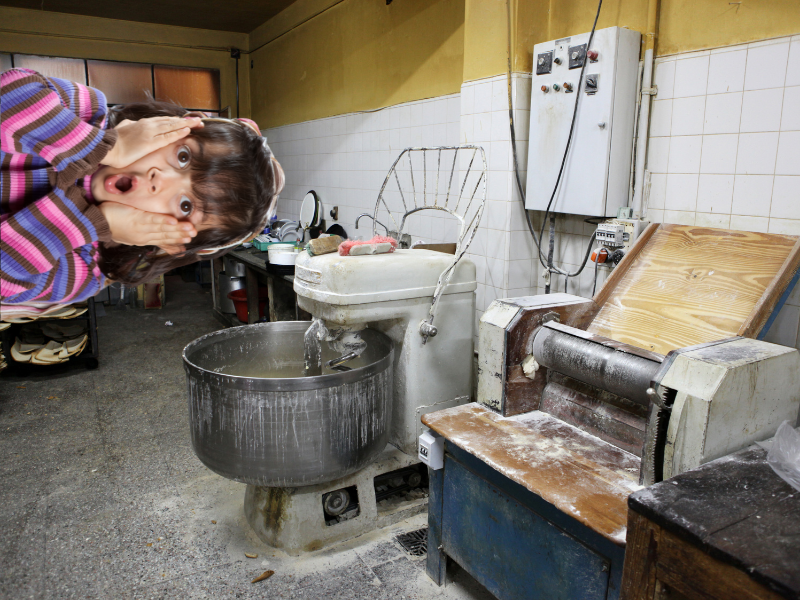Your cart is currently empty!
Do Not Apply HACCP Under These Conditions
HACCP (Hazard Analysis and Critical Control Points) certification is crucial for maintaining high food safety standards, but it’s not always the right choice for every business. Do not apply HACCP if certain conditions apply to your situation. Here are some scenarios where pursuing HACCP certification might not be necessary or beneficial:
When You Have No Plans to Expand Your Business
If you’re running a small food stall serving only your local area and have no intentions of expanding or reaching broader markets, applying for certification might be unnecessary. For example, if your street food stall caters exclusively to local customers and you’re not planning to sell beyond your immediate area, the certification process might not be worth the effort.
When Your Business Lacks Proper Licensing
Certification requires that your business operates from a licensed, legal location. For instance, if you’re preparing food in a home kitchen or running a bakery from your backyard without proper permits, you won’t qualify for certification. Ensure your premises are legally recognized and compliant with local regulations before considering this step.
When Your Facility Fails to Meet Food Safety Standards
If your facility doesn’t adhere to basic food safety standards, it’s not ready for certification. For example, a café with a leaky fridge or improperly stored food would not meet the necessary requirements. Addressing these basic issues is crucial before applying.

Do Not Apply HACCP if Your Suppliers or Ingredients Lack Safety Certifications
Certification requires that all aspects of your supply chain meet safety standards. If your suppliers or the ingredients you use lack proper safety certifications, it could impact your application. For example, if your meat supplier doesn’t have the necessary safety certifications or traceability records, it might affect your process. Similarly, if you source vegetables from a local farm that doesn’t follow safety protocols, this can impact your certification.
Do Not Apply HACCP if You Misunderstand Food Safety Certifications
Sometimes, businesses think certification is only for large companies or too complicated. For instance, a small catering service might believe the certification is irrelevant due to their limited food volume. It’s important to have a clear understanding of what the certification entails before applying.
Do Not Apply HACCP if You Lack a Dedicated Food Safety Team
Monitoring critical control points requires a trained team. For example, a small bakery with only a couple of staff who are not trained in food safety practices would struggle with the requirements. Ensure you have a dedicated, trained team in place.
You’re Not Ready to Document Everything and Dedicate Time to the Process
Thorough documentation and time commitment are key aspects of the process. For example, a restaurant that doesn’t track refrigerator temperatures or ingredient delivery logs will find it difficult to comply.
Additionally, the certification process is time-intensive, involving detailed monitoring and record-keeping. A busy restaurant owner who is already stretched thin managing daily operations may find it hard to keep up with the necessary checks and updates. Ensure you have the time and resources to commit.
You’re Not Willing to Invest in Training and Improvement
Certification requires that all employees are properly trained in food safety procedures and that continuous improvements in safety and quality are made.
For instance, if you run a food truck and haven’t trained your staff on hygiene and temperature control, or if you manage a traditional bakery that sticks to outdated methods without upgrading equipment, maintaining the necessary standards will be challenging. Be prepared to invest in both staff training and ongoing improvements to meet the requirements.
When You Can’t Implement Strict Cleaning, Maintenance, and Resource Management
Rigorous cleaning and maintenance routines are necessary. For example, if your restaurant doesn’t have a regular schedule for cleaning equipment or maintaining storage areas, you may not pass inspections. Additionally, the certification process can be costly and require investments in equipment and facility improvements. For instance, a small café might find it challenging to afford new refrigeration units or safety audits. Monitoring and record-keeping also often require specialized equipment. If your restaurant uses outdated equipment that doesn’t accurately measure temperatures, you might struggle to meet the necessary standards. Assess your budget and invest in reliable technology to ensure compliance.
You Lack Strong Communication Channels with Your Team
Effective communication is crucial for successful implementation. For example, if the head chef does not clearly communicate food safety standards to the kitchen staff, it could lead to inconsistent practices. Good communication is essential for compliance.
What’s your take on certification? Have you faced any of these challenges? Share your thoughts or experiences in the comments below!
Discover our full range of disposable PPE products here

Leave a Reply
You must be logged in to post a comment.